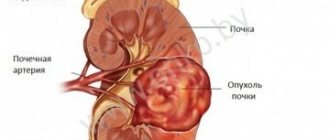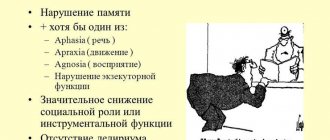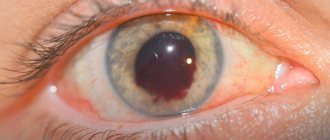Content:
- Scientific research that makes you think
- How does alcohol affect the brain?
- The effect of ethanol on different areas of the brain
- Alcohol and mental activity
After drinking alcohol, a person begins to think that he is smarter, stronger, more beautiful and successful.
His self-esteem increases for a while, and self-confidence appears. That is why drunk people do not behave as they always do: modest introverts easily make acquaintances, those who are afraid of pain abruptly initiate a fight, those who do not know how to express their thoughts give long “smart” lectures to the first people they meet. Alcohol will change reality. Scientists claim that it affects brain function in much the same way as traumatic brain injury. Therefore, to say that it does not impair intellectual functioning is unreasonable.
Ethanol and CNS
Ethanol acts on the central nervous system in the same way as anesthetics. In medicine, only periodic use of such drugs is allowed; their regular use is not recommended due to possible disturbances in the functioning of the central nervous system.
Mechanism of action:
- excitation. When drinking alcohol, the nervous system is in an excited state due to the suppression of regulatory and inhibitory mechanisms. This is a manifestation of a failure that, when constantly occurring, disrupts the functioning of the central nervous system at the system level;
- dream. Alcohol helps you fall asleep faster, but impairs the quality of your sleep. The REM sleep phase is shortened, rest cycles change and become disrupted. Because of this, the central nervous system and brain do not have time to fully “rest”, even if the period of sleep was long. The hypnotic effect of alcohol is temporary. With constant use, alcohol stops speeding up falling asleep after three days, and the total duration of sleep decreases due to early awakening;
- neurotoxic effect. It provokes the death of brain neurons, which affects the state of the central nervous system. Regulatory mechanisms are disrupted, the emotional state worsens, anxiety arises, delirium and other disorders may appear;
- mediator mechanism. Ethanol stimulates the release of dopamine, which causes a feeling of euphoria and increases activity. After its resources are depleted, the opposite effect occurs: depressive symptoms occur, performance decreases, and general condition worsens. This provokes the formation of addiction. Without alcohol, a person is depressed. He can experience positive emotions only when drinking alcohol.
Scientific research that makes you think
German scientists studied the effect of alcohol on mental activity using guinea pigs as an example. They gave the animals a dose of ethanol equivalent to two glasses of wine. As a result, the content of the component in the blood increased by approximately 0.05%.
After this, the rodents' brains were thoroughly examined using MR spectroscopy. Diagnostics showed that 6 minutes after drinking, brain cells began to change. The content of creatine, which is recognized as the main energy source, decreased in neurons. The vacated space was quickly occupied by ethanol molecules.
The amount of choline in cell membranes also decreased. This vitamin component is needed for the occurrence and passage of neural signals. Without it, the nervous system cannot function stably. Choline deficiency causes a decrease in intellectual activity. This suggests that the effect of alcohol on mental activity is extremely negative.
It should not be assumed that the findings apply only to guinea pigs. In these animals, metabolism proceeds almost the same as in humans. Therefore, test results are easily extrapolated to the human body.
Consequences of long-term use
The effect of drinking any amount of alcohol on the nervous system and brain:
- swelling and dilated blood vessels of the head;
- changes in brain cells, the same as in case of poisoning with other poisons;
- Small structures are damaged, and this damage affects function.
The defeat largely affects higher brain activity (psyche) - a person’s ability to think, realize, remember, make decisions, love and, in general, be truly intelligent and adequate.
But the damage also affects the brain activity that controls the digestive, cardiovascular and other systems. The effect of alcohol on brain cells causes deterioration:
- memory;
- attention;
- ability to realize;
- mental activity;
- adequate assessment of what is happening
- self-esteem;
- curiosity (the range of interests is limited);
- moods (depression, outbursts of aggression).
The ability to distinguish between good and evil disappears, and therefore the ability to experience shame and hear the voice of conscience.
And then everything gets worse - he sees and hears what is not there (hallucinations), suspicion (delusions of persecution or betrayal), and so on. Dementia doesn't happen overnight. A reasonable and happy person gradually, with every sip, moves towards madness. The less he drinks, the more invisible this process is. But the more he drinks, the less he can see and realize what alcohol does to him.
How does alcohol affect the brain?
To date, it has been established that ethanol affects both nerve cells and blood vessels. Taking it in high doses causes blockage of capillaries. Alcohol causes blood cells to stick together and form blood clots. They block narrowed capillaries in different brain areas. Hence the risk of developing oxygen starvation. Oxygen deficiency triggers the death of neurons.
This explains why alcoholics with a long drinking history often behave strangely, cannot focus on anything, and are unable to solve the simplest problems. Even those people who were previously intellectually developed and well-read are becoming stupid.
Alcohol inhibits the activity of parts of the brain responsible for regulating higher nervous activity. Only those areas of the organ that are responsible for maintaining physiological reflexes continue to work more or less normally - eat, drink, go to the toilet, get sexual pleasure, defeat an opponent.
That's why drunk people often behave like animals. They start fights, scream, break valuables, and enter into intimate relationships with strangers. The morning after drinking, they are ashamed of their actions. But as alcohol addiction develops, amnesia may occur. Then, even in rare moments of sobriety, they are unable to remember what they did the day before.
The effect of ethanol on different areas of the brain
To understand how harmful ethanol is, you need to describe how it affects different parts of the brain:
- Mesolimbic pathway. Responsible for the emergence of feelings of pleasure and various desires. Associated with the processes of memorization and learning. Under the influence of alcohol, only the desire to have fun comes to the fore. Intellectual abilities are suppressed.
- Hippocampus Takes part in the formation of memories. Helps to navigate in space. Participates in the generation of brain cells. When drinking alcohol, the stable functioning of the hippocampus is blocked. Memory decreases, mental activity seems unbearable to the alcoholic.
- Cerebral cortex. The processes of thinking and analysis depend on it. Alcohol slows down the work of the department. As a result, the alcoholic develops a feeling of liberation. Processing of incoming information is slowed down. Mental reactions are blocked.
- Prefrontal and frontal left cortex. High doses of ethanol reduce the number of neurons in these regions. For this reason, alcoholics lack willpower. They lose problem solving skills. They stop setting goals and making plans. Motivation decreases.
- Pituitary gland and hypothalamus. Responsible for hormonal regulation. This is why dangerous hormonal disorders develop under the influence of alcohol.
- Cerebellum. Regulates muscle tone, motor activity, maintains normal pressure in blood vessels. When it is damaged by toxic metabolites of alcohol-containing drinks, serious problems arise, including complete loss of coordination of movements.
- Amygdala. Emotion assistant. Allows you to sense impending danger. Controls the level of aggression. If damaged by alcohol, it begins to work not at full capacity. For this reason, drinkers consider themselves omnipotent and become fearless.
Alcoholic drinks harm all areas of the brain, it’s just that those listed above suffer more than others. You should not check how long intellectual activity can be maintained during constant binge drinking. Timely treatment of alcoholism is the best prevention of dangerous disruptions in brain function.
Alcohol and mental activity
Alcohol disrupts mental processes of an associative nature. This is a scientifically proven fact. As a consequence, the brain includes only the basic mental operations responsible for perception. Intellectual activity decreases.
VND centers affected by drinking are affected. It takes several weeks for them to start working fully after a one-time alcohol poisoning. With alcoholism and prolonged drinking bouts, there is no need to talk about complete recovery at all. The situation is improving very slowly. For the brain to start working stably, at least one year must pass. During this entire period, the drunkard should not drink alcohol.
Speaking about the effect of alcohol on mental activity, one cannot fail to mention that it destroys neurotransmitters. Hence the feeling of anxiety, constant mood swings, and depression. Patients lose the ability to correctly express their emotions and feelings. It is very difficult to communicate constructively with them.
Fight alcoholism competently - seek help from a narcology clinic. Don't let alcohol addiction turn you into a "close-minded Neanderthal." Value your mind and intellect. Don't let alcohol ruin your life.
Effects of alcoholism on the brain
Alcohol not only dries out the gray matter of the addict, long-term drinking bouts can lead to the development of pathologies.
What brain diseases can alcoholism cause?
- Encephalopathy. With this disease, organic changes in neurons occur, memory loss, sudden mood swings, apathy, etc. are possible. This disease occurs at the last stage of addiction.
- Korsakoff's disease is a severe form of alcoholic encephalopathy, which entails dementia, memory loss, and polyneuritis (decreased sensitivity of the limbs). Patients cannot even determine what month or day it is. Korsakov's disease is also complicated by wasting of muscle tissue; patients often become disabled and cannot move independently.
- Alcoholic epilepsy. Seizures occur during a hangover. Once the addiction is treated, seizures are also cured. The longer a person drinks, the more often seizures occur, which gradually destroy the brain. If left untreated, it eventually leads to dementia.
- Neurotic disorders: insomnia, severe fatigue, irritability. With prolonged drinking bouts, the following may develop: delirium tremens, hallucinosis, paranoia, delusions of jealousy.
Scientists have proven that alcohol affects teenagers more than adults. This is because their brain continues to develop, which means it suffers much more damage. At a young age, destruction processes occur faster. If indulgence in alcoholic beverages develops into serious problems with alcohol, the consequences for the brain will be severe.
Literature:
- On the influence of alcohol, smoking and drug addiction on the mental and physical development of a teenager / K. Kadyrov; Ped. island of the UzSSR. - Tashkent: Ukituvchi, 1988. - 27 p.
- Prevention and correction of mental development disorders in children with family alcoholism: a manual for psychologists and teachers / E. M. Mastyukova, G. V. Gribanova, A. G. Moskovkina. — Moscow: Humanitarian. published VLADOS center, 2006 (Velikiye Luki: Velikiye Luki City Printing House). — 115 s.
- Healthy lifestyle and bad habits of adolescents: textbook / L. A. Korneeva; Transbaikal State humanities-ped. University named after N. G. Chernyshevsky. - Chita: ZabGGPU, 2009. - 156 p.










